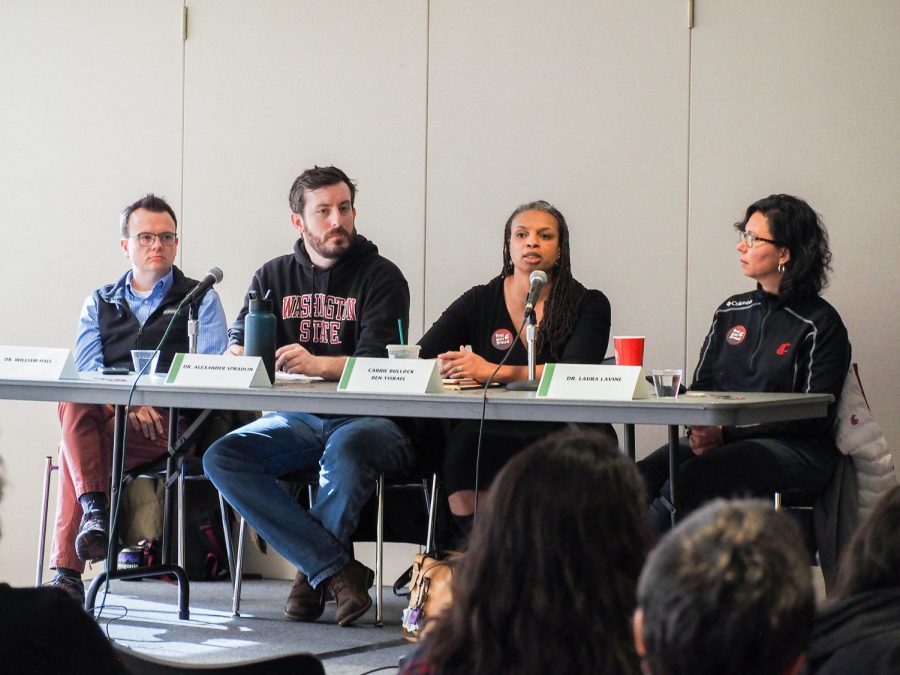Teaching advocacy organization adds new members for first time in six years
New faculty members include 27 people from six colleges, 17 departments; application process necessary to join
GRACE JOO | DAILY EVERGREEN FILE
William Hall, far left, is an assistant professor for mathematics and statistics. Hall said he was recently inducted into the WSU President’s Teaching Academy.
May 20, 2020
The WSU President’s Teaching Academy nearly doubled their membership when they admitted 27 new faculty members from six colleges and 17 departments in April, which is the first time any new members have joined since 2014.
The teaching academy is an organization with members that consists of faculty from every campus who are dedicated to improving teaching excellence at WSU, according to the academy’s website.
The academy has four goals for the university. The first goal is to promote a university-wide culture that values, supports and rewards teaching excellence. The second is to implement academic goals that improve educational processes and student achievement, according to the website.
The third goal is to support teaching models that allow deep and lasting understanding for students, according to the website. The fourth is to create mindsets and practices for students and faculty, which will drive self-motivated, life-long learning.
William Hall, assistant professor for mathematics and statistics, said he applied for the academy to help improve instruction quality on campus.
“Not only do I want to be a really effective teacher, I want to help figure out what the most effective teaching strategies are to support student learning,” he said. “I want to be part of that conversation for what teaching looks like at WSU.”
Members of the academy participate in faculty advocacy, cross-disciplinary peer evaluation, informal mentorship and professional development efforts. Members also shape university policy, as well as review grants and awards.
Clif Stratton, clinical assistant professor for history and chair of the academy, said the academy is working on a new method to evaluate professors at WSU.
“We hope in the near future to introduce a new model,” he said. “It’s not replacing the student course evaluations, but one that creates ways to offer feedback to other faculty.”
According to the website, teachers who want to join the academy have to go through an application process and get two letters of recommendation: one from a colleague, mentor, or administrator and one from a current or former student.
Hall said he chose a student who he has had interesting conversations with rather than a student who he favored or one who succeeded in a particular way.
“He seemed like somebody who knew what he wanted out of his education in this course,” Hall said. “So if somebody who knows what they want and who knows what they want out of their education could provide me with a positive letter, then I think that would be indicative of my instructional philosophy and effectiveness of my teaching.”
Stratton said a ceremony for new members and the election for new officers will be held in the fall rather than the spring due to COVID-19.
















